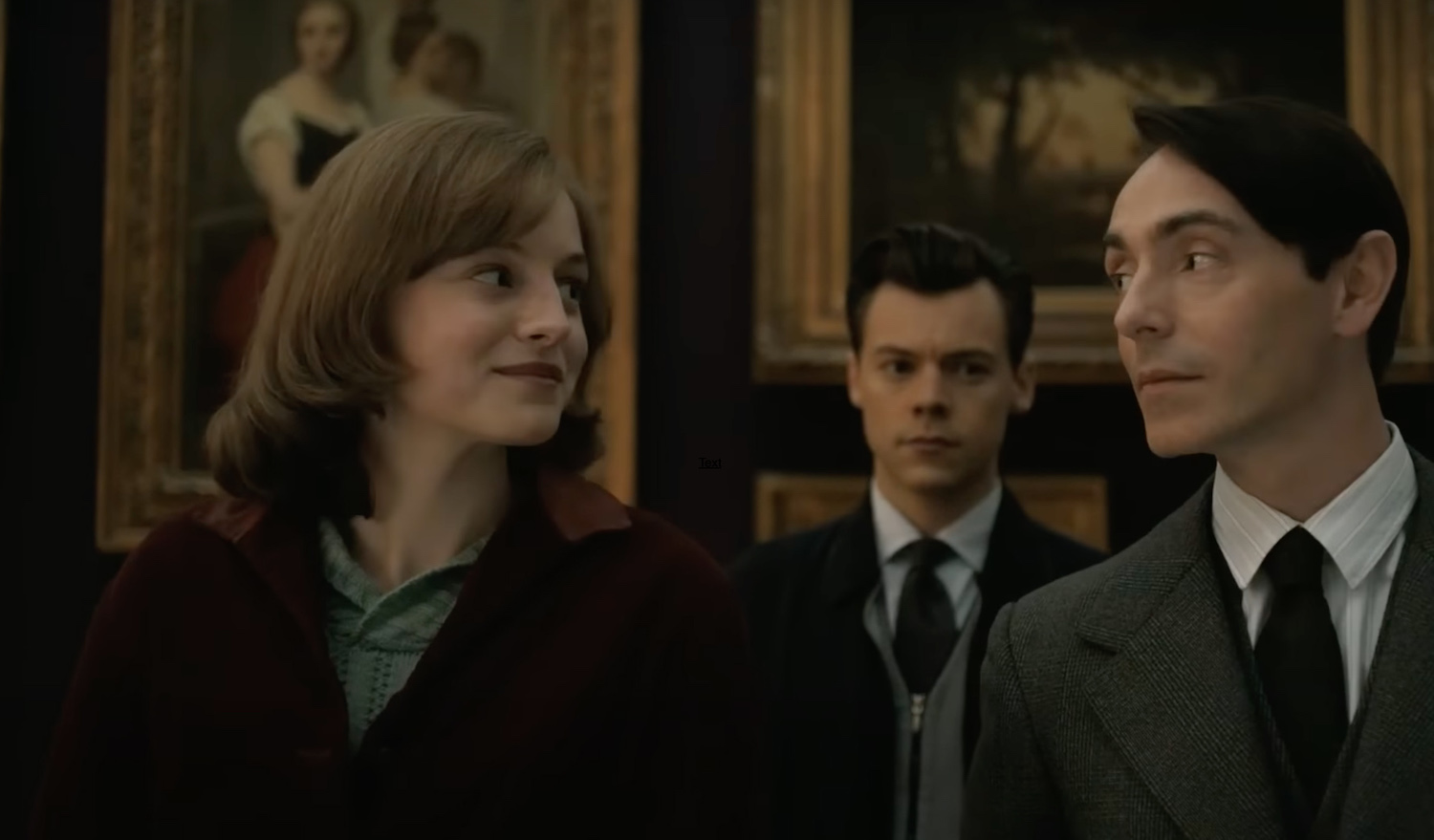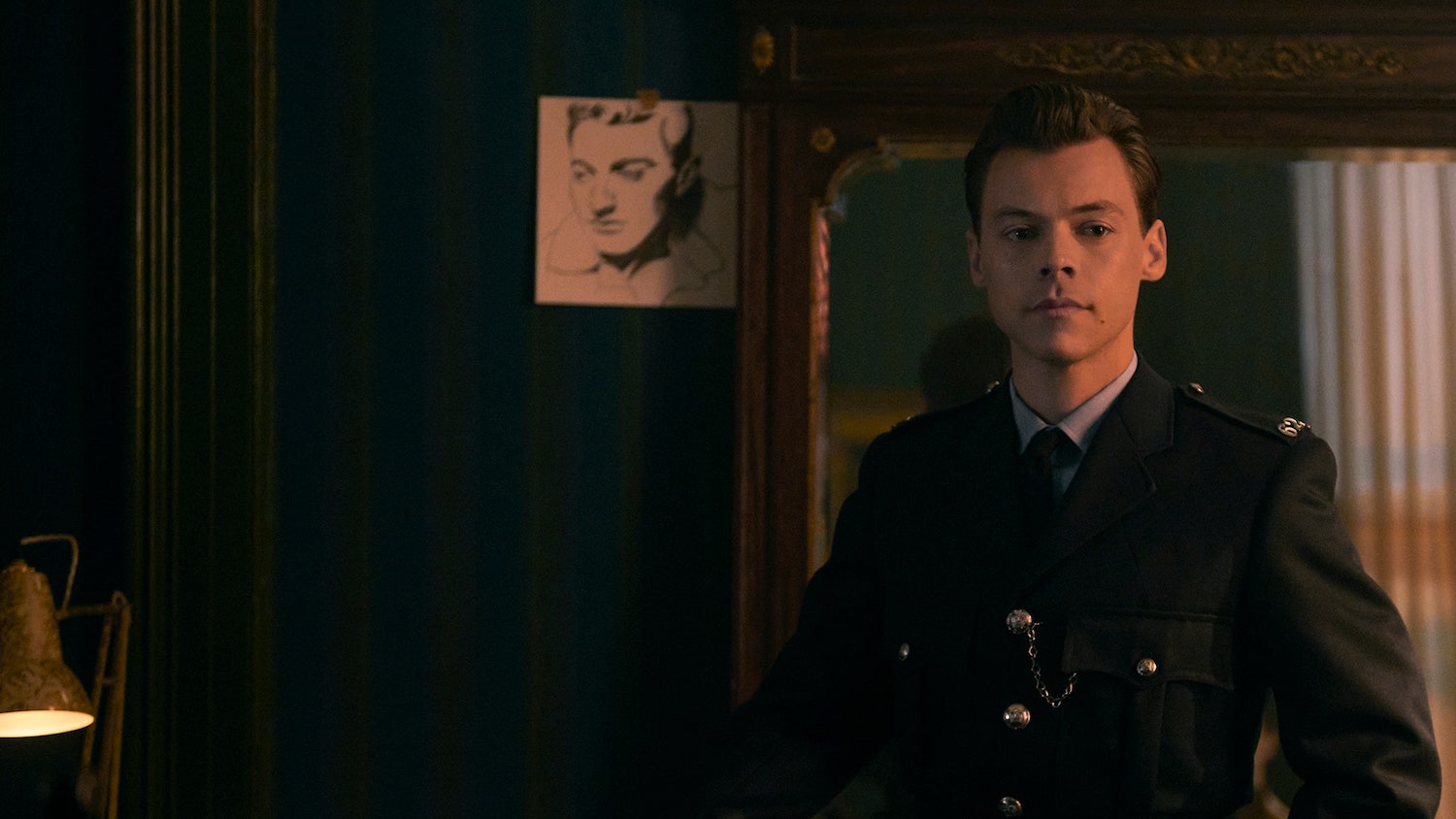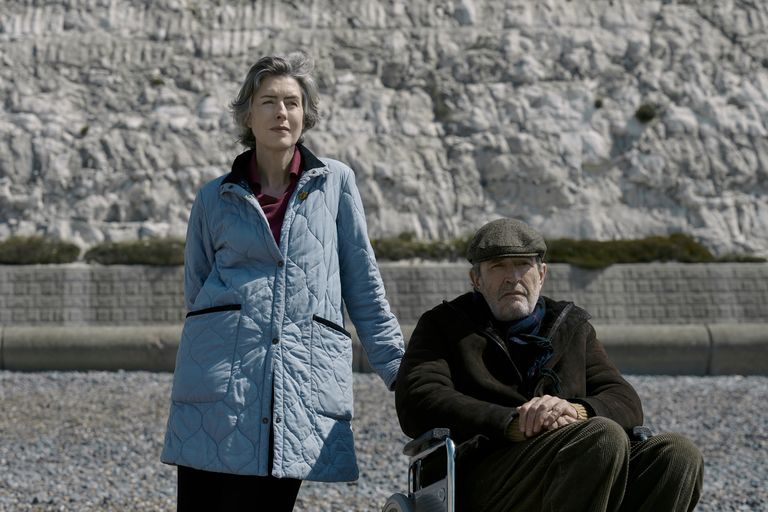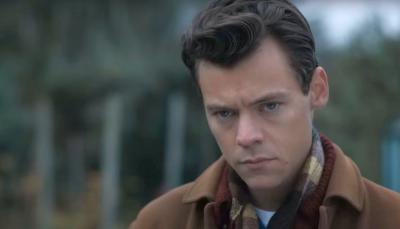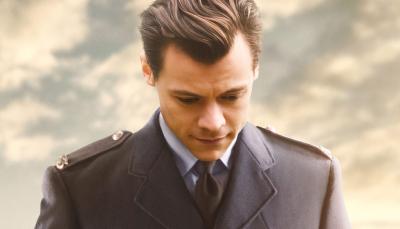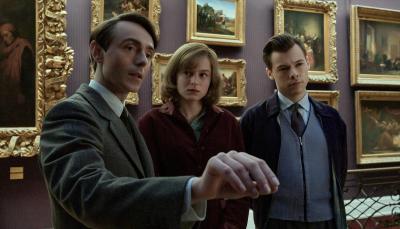'My Policeman' Showcases a Three-Way Love Story with No Happy Ending
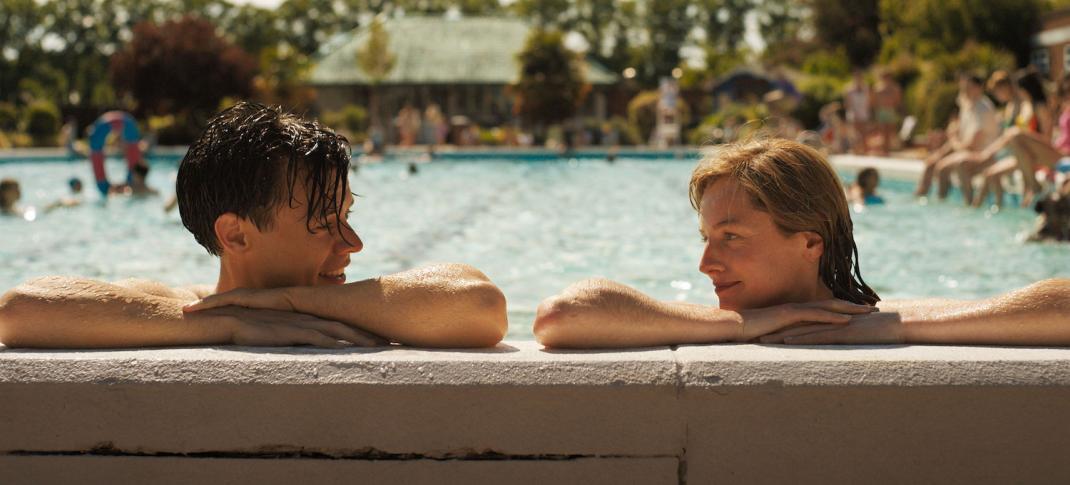
Tom (Harry Styles) and Marion (Emma Corrin).
© Amazon Prime Video
My Policeman is a movie you really want to like, although its strange and inconclusive ending may leave you confused. It has a great cast, is directed by Michael Grandage, is based on the book by Bethan Roberts, and with a screenplay by Roy Nyswaner (whose credits include Philadelphia). It’s a fictionalized drama loosely based on real-life English author E.M. Forster, whose A Room with a View, Howards End, and A Passage to India are all considered early 20th-century classics and who had a life-long affair with a married policeman (albeit in the early 1900s rather than post-War England).
Like Forster's arrangement, this story begins as a love affair between two LGBTQ+ men in the 1950s, which is told in flashbacks from the 1990s. The policeman of the title, Tom (Linus Roache/Harry Styles as the younger version in the 1950s), encounters his former lover Patrick (Rupert Everett/David Dawson as the younger version) some forty years later. Tom is still married to the third wheel in that relationship, Marion (Gina McKee/Emma Corrin as the younger version). It’s not a happy marriage, particularly now as Marion has decided they are to house Patrick following a stroke. Tom and Patrick have been estranged for years, and Tom doesn’t want to see him.
But, back to the beginning, on a sunny day on Brighton beach, as Tom (Styles) emerges from the waves, and young teacher Marion (Corrin) is enchanted. Just to remind us that it is indeed the 1950s, the soundtrack is crammed with hits of the decade, and the visuals are pastel and bland. He teaches her to swim and touchingly tells her he is trying to improve himself. Clearly, he is below Marion on the social scale and not so well educated, having gone straight from school to National Service in the military and from there to the police.
Tom announces to Marion that he wants her to meet his friend, Patrick (Dawson), a curator at the local art museum. For a while, they are a happy threesome, going out together to cultural events, exploring art, and having fun. Some cultural activities are more successful than others (Tom naps through a chamber recital), but Marion is in her element. She raves about the two men to her best friend Julia (Freya Mavor) –– Tom is perfect, and Patrick is dashing.
Unfortunately, as was also the case much of the time in the 1950s, she also has no idea that Tom and Patrick are lovers.
It would be easy to claim that Patrick is a seducer and that Tom is innocent. We’re never quite sure. I hesitate to attribute the woodenness to Styles’ acting ability (Ed note: I saw Don't Worry Darling, it's ok, you totally can), but Patrick does come across as a seasoned predator who knows all the moves. Or can we assume they’re both playing favorite and familiar roles, as evidenced by Patrick’s fascination with Tom’s uniform? Sadly, there is more heat between Marion and Tom in the swimming pool than in his carefully choreographed encounters with Patrick.
Life for the LGBTQ+ community in that period could be grim, risking arrest and harsh prison sentences and conditions. We’re told that Patrick’s previous partner was beaten to death, and we’re shown scenes of a sleazy club and furtive back alley encounters. What happened behind closed doors may have been private, but sex between men was still illegal.
Tom, a realist through and through, knows he’ll stand a better chance at a promotion if he’s married and wants to have children. He borrows Patrick’s apartment to propose to Marion and assures Patrick their relationship will continue even after he’s married. Patrick shows up at the cottage where they’re honeymooning to cook a celebratory dinner. Still, the evening ends badly after Marion shares her intention to keep teaching, whereas Tom wants her to stay home and have babies. The next morning she sees them embracing, and after Patrick has left, she reclaims her territory by initiating sex with Tom.
The game is on, a rivalry for Tom’s affections, and Patrick, afraid he’ll lose him, offers him the chance of a trip to Venice as his paid assistant. After the boys have left for fun in the sun, she asks her friend Julia what she can do to “fix” Tom. To Marion’s horror, Julia comes out to her, shaking her world further. A postcard from Venice arrives, and she sets fire to it. There’s no doubt that Marion is innocent in many ways, but she also has the typical biases and prejudice of a woman of her class and times and times, which means, yes, she is homophobic. She’s angry and humiliated. If destroying Patrick will save her marriage, then that’s what she’ll do.
There’s a quiet, humorous relationship between the older Marion and Patrick –– she bribes him with forbidden cigarettes to cooperate with her nursing. She’s gentle and kind but can’t resist reading his diary. Is her decision to care for Patrick atonement for past wrongs? Or revenge on both men? She mentions she thought her retirement might have included more art gallery trips, clearly remembering their relationship's happier moments. (Marion! You can go to museums on your own; it’s no big deal!) It makes little difference if she’s trying to punish Tom, who is already diminished by age and disappointment. He just shrugs and walks the dog. (Nice to know that the doggo is getting something out of the relationship.)
But the sight of two men expressing affection in public makes him weep, acknowledging something he could never experience. At the end of the movie, there is a terrible sense of loss, not love, as Marion leaves the two men alone to cope with the damage from the past as best they can, and little sense of reconciliation or forgiveness. We still don’t know who the My of the title belongs to (and why should Tom belong to anyone, anyway?). My Policeman, despite its sensitivity to the past and its accomplished cast, lacks the strong emotional impetus to elevate it to brilliance.
My Policeman is streaming on Amazon Prime Video.

